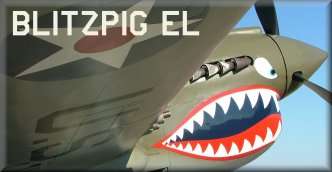
 |
|
#51
|
|||
|
|||
|
Nothing new. In the 60's Switzerland had it's own Nuclear program, it had exactly 2 goals.
1st: Being able to deliver a nuke to Moscow. (That was sole reason we choose the Mirage3 back then) 2nd: Nuke our own country in case we're overrun. Make sense, since we don't have an offensive army[or even the capability,lol]. Speaking of killing your own: The handgun each military officer carries is nothing but a "moral enforcer". Torps: During the Cuba crisis, the Russian subs were equipped with nuclear torpedoes - the decision to fire them was up to the captain, no need for an ok from the politbüro. Don't you think they would also work pretty well against a flotilla/carrier group? Last edited by swiss; 09-03-2010 at 03:05 PM. |
|
#52
|
|||
|
|||
|
Quote:
Even radiation to certain levels can be dealt with. I know the US did studies on radiation levels and how to decontaminate and protect people from radiation. It was surprising how "close" one could be a nuclear blast and survive, even long term, if they had some limited protection. My understanding also is that NATO had "plans" to use tactical nukes against Soviet armor. The paths that the Soviets were likely to use to invade Western Europe were limited. Deny those paths and the armor columns could get bottled up. Soviet armor was one of the biggest concerns because it was decent and very numerous. That's why so much US development went into tank busting (Apache, A-10, etc..). On the flip side, the "nuclear tank" and artillery piece were abandoned a long time ago to my recollection. Too vulnerable, not enough range, and not effective enough plus very expensive. I'm not sure if anyone (nations) still subscribes to the concept of a limited nuclear engagement. Those types of encounters would seem to lead to escalation in short order. No google was used on these assertions, all done from memory so take it for what it is worth. Splitter |
|
#53
|
|||
|
|||
|
Also from memory - the Chenobyl disaster did a lot to persuade some of the USSR's more hawkish generals that the prospects of a 'clean', limited, no-nukes conventional war were non-existant. So when Poland led the defection of Eastern European nations from glorious Marxism to degenerate capitalism, the consensus was that military intervention was not possible - even 'conventional' warfare would involve airstrikes on both side's nuclear power stations, the fallout from which would strike the whole world and probably bring in NATO as 'peacekeepers'. The Chenobyl distaster may have indirectly saved many more lives than it took!
I wish I could remember where I read this. Very probably a library book. Should maybe see if they have long-term records of what I've borrowed... |
|
#54
|
|||
|
|||
|
For those of you who don't know American history, there was a famous showman in the 19th century by the name of P.T. Barnum. He had a saying: "There's a sucker born every minute." This thread proves that axiom.
__________________
4H_V-man The 2nd Horseman |
|
#55
|
|||
|
|||
|
Quote:
2nd: Chernobyl was in 1986 3rd: The USSR collapsed in 1991 Conclusion: There were only 4 years left for the USSR. During that time they never had a realistic chance to win any war against the west. We could also discuss how bad this Ukrainian disaster really was. The countermeasures in (W-)Europe were, maybe, a little over the top. |
|
#56
|
|||
|
|||
|
Chernobyl fall out
IIRC in the UK water supplies in some Northern areas was affected as were livestock and crops. 
|
|
#57
|
||||
|
||||
|
And all this pertains to a WW2 flight simulator in what way?
Luthier is right, you guys are all mostly insane. 
__________________
 Personally speaking, the P-40 could contend on an equal footing with all the types of Messerschmitts, almost to the end of 1943. ~Nikolay Gerasimovitch Golodnikov |
|
#58
|
|||
|
|||
|
Quote:
|
|
#59
|
|||
|
|||
|
Churchill was under pressure from the Americans to shift the bombing effort away from cities and towards oil supplies and transport to assist the assault on Germany.
Churchill was also under pressure from Stalin to increase the area bombing of cities, presumably as a scorched earth policy meant a more pliable destroyed Germany post war for Stalin to control. In the end Churchill went with Stalin wishes, not the Americans, though he later seems to have had second thoughts about appeasing Stalin. According to Speer, postwar, if Churchill had listened to the Americans and prioritized oil supplies as a target the war may have finished 6 months early. |
|
#60
|
|||
|
|||
|
Quote:
Second, I didn't realize the Stalin connection, but it fits. I do know (my understanding at least) that the Germans bombed a British city first, apparently by mistake. The Brits of course did not know this so they bombed Berlin. In reply, Hitler vowed to wipe English cities off the map starting with London. That Stalin would want to continue to bomb cities is not surprising. He had big post-war plans for Europe. Obviously. This all leaves me thinking of where the turning point in the war in Europe might have been. Every contest has moments where momentum turns, sometimes several. Splitter |
 |
|
|